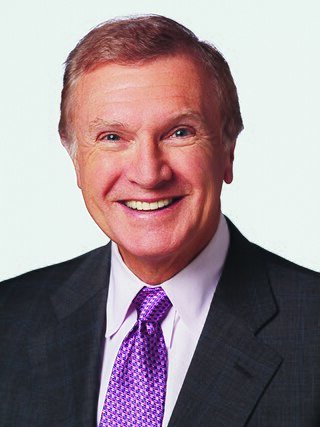
Industrial and organizational psychology is the science of human behavior in the workplace. It is an applied discipline within psychology. Depending on the country or region of the world, I-O psychology is also known as occupational psychology in the United Kingdom, organisational psychology in Australia and New Zealand, and work and organizational (WO) psychology throughout Europe and Brazil. Industrial, work, and organizational (IWO) psychology is the broader, more global term for the science and profession.

A psychologist is a professional who practices psychology and studies mental states, perceptual, cognitive, emotional, and social processes and behavior. Their work often involves the experimentation, observation, and interpretation of how individuals relate to each other and to their environments.
Coaching is a collaborative partnership between the coach and the client, also known as the coachee, which aims to enhance the client's personal and professional development. The coach utilizes various techniques, tools, and frameworks to help clients clarify their goals, identify obstacles, and develop action plans to achieve desired outcomes.
Professional development, also known as professional education, is learning that leads to or emphasizes education in a specific professional career field or builds practical job applicable skills emphasizing praxis in addition to the transferable skills and theoretical academic knowledge found in traditional liberal arts and pure sciences education. It is used to earn or maintain professional credentials such as professional certifications or academic degrees through formal coursework at institutions known as professional schools, or attending conferences and informal learning opportunities to strengthen or gain new skills.
Performance improvement is measuring the output of a particular business process or procedure, then modifying the process or procedure to increase the output, increase efficiency, or increase the effectiveness of the process or procedure. Performance improvement can be applied to either individual performance, such as an athlete, or organisational performance, such as a racing team or a commercial business.

Applied psychology is the use of psychological methods and findings of scientific psychology to solve practical problems of human and animal behavior and experience. Educational and organizational psychology, business management, law, health, product design, ergonomics, behavioural psychology, psychology of motivation, psychoanalysis, neuropsychology, psychiatry and mental health are just a few of the areas that have been influenced by the application of psychological principles and scientific findings. Some of the areas of applied psychology include counseling psychology, industrial and organizational psychology, engineering psychology, occupational health psychology, legal psychology, school psychology, sports psychology, community psychology, neuropsychology, medical psychology and clinical psychology, evolutionary psychology, human factors, forensic psychology and traffic psychology. In addition, a number of specialized areas in the general area of psychology have applied branches. However, the lines between sub-branch specializations and major applied psychology categories are often mixed or in some cases blurred. For example, a human factors psychologist might use a cognitive psychology theory. This could be described as human factor psychology or as applied cognitive psychology. When applied psychology is used in the treatment of behavioral disorders there are many experimental approaches to try and treat an individual. This type of psychology can be found in many of the subbranches in other fields of psychology.

School psychology is a field that applies principles from educational psychology, developmental psychology, clinical psychology, community psychology, and behavior analysis to meet the learning and behavioral health needs of children and adolescents. It is an area of applied psychology practiced by a school psychologist. They often collaborate with educators, families, school leaders, community members, and other professionals to create safe and supportive school environments.

Counseling psychology is a psychological specialty that began with a focus on vocational counseling, but later moved its emphasis to adjustment counseling, and then expanded to cover all normal psychology psychotherapy.

The Chartered Institute of Management Accountants (CIMA) is the global professional management accounting body based in the UK. CIMA offers training and qualification in management accountancy and related subjects. It is focused on accountants working in industry and provides ongoing support and training for members.

Health psychology is the study of psychological and behavioral processes in health, illness, and healthcare. The discipline is concerned with understanding how psychological, behavioral, and cultural factors contribute to physical health and illness. Psychological factors can affect health directly. For example, chronically occurring environmental stressors affecting the hypothalamic–pituitary–adrenal axis, cumulatively, can harm health. Behavioral factors can also affect a person's health. For example, certain behaviors can, over time, harm or enhance health. Health psychologists take a biopsychosocial approach. In other words, health psychologists understand health to be the product not only of biological processes but also of psychological, behavioral, and social processes.

William C. Byham is an American entrepreneur, author and industrial/organizational psychologist.
Training and development involve improving the effectiveness of organizations and the individuals and teams within them. Training may be viewed as related to immediate changes in organizational effectiveness via organized instruction, while development is related to the progress of longer-term organizational and employee goals. While training and development technically have differing definitions, the two are oftentimes used interchangeably and/or together. Training and development have historically been topics within adult education and applied psychology but have within the last two decades become closely associated with human resources management, talent management, human resources development, instructional design, human factors, and knowledge management.

Clive Sherlock is a British doctor who trained in cognitive behavioural therapy and Jungian psychoanalysis during postgraduate studies at Oxford. He saw limitations in the theories and uses of psychotherapy, cognitive behavioural therapy and psychotropic medication, recognising that we do not understand the nature and cause of conditions such as clinical depression, anxiety, anger and stress, which is why experts are still searching for ways of treating them. As well as studies and work in conventional medicine and psychology he also made a specialised study of far eastern psychology and philosophy, particularly that of Buddhism, and in 1975 he introduced meditation as part of a structured training programme for people facing anything from mild to the most severe psychological and emotional difficulties. These included bipolar, major depression, anxiety, panic, obsessive-compulsive disorder and eating disorders.

Sport psychology was defined by the European Federation of Sport in 1996, as the study of the psychological basis, processes, and effects of sport. Otherwise, sport is considered as any physical activity where the individuals engage for competition and health. Sport psychology is recognized as an interdisciplinary science that draws on knowledge from many related fields including biomechanics, physiology, kinesiology and psychology. It involves the study of how psychological factors affect performance and how participation in sport and exercise affect psychological and physical factors. Sport psychologists teach cognitive and behavioral strategies to athletes in order to improve their experience and performance in sports. In addition to instruction and training of psychological skills for performance improvement, applied sport psychology may include work with athletes, coaches, and parents regarding injury, rehabilitation, communication, team building, and career transitions.

Consulting psychology is a specialty area of psychology that addresses such areas as assessment and interventions at the individual, group, and organizational levels. The Handbook of Organizational Consulting Psychology provides an overview of specific areas of study and application within the field. The major journal in the field is Consulting Psychology Journal: Practice and Research. Consulting psychologists typically work in business or non-profit organizations, in consulting firms or in private practice. Consulting psychologists are typically professionally licensed as psychologists.

Psychology encompasses a vast domain, and includes many different approaches to the study of mental processes and behavior. Below are the major areas of inquiry that taken together constitute psychology. A comprehensive list of the sub-fields and areas within psychology can be found at the list of psychology topics and list of psychology disciplines.
The International Society for Performance Improvement (ISPI) is a non-profit association for performance improvement professionals dedicated to improving individual, organizational, and societal functioning, productivity, and accomplishment in the workplace.
An animal behavior consultant is a practitioner of applied behavior analysis or clinical animal behaviour, who helps resolve behavior problems in animals, usually companion animals. Animal behavior consultants are usually employed to identify the cause of a behavior problem, to develop an intervention plan to change the problem behavior, and to help the owners learn how to execute that plan. Animal behavior consultants are distinct from animal trainers, in that their primary goal is not to train an animal to have basic manners or to perform a task, such as agility competition for dogs, but to mitigate behaviors that are problems for the animal's owner. Animal behavior consultants may also be known as clinical animal behaviourists, pet behavior counsellors or pet psychologists.

Coaching psychology is a field of applied psychology that applies psychological theories and concepts to the practice of coaching. Its aim is to increase performance, self-actualization, achievement and well-being in individuals, teams and organisations by utilising evidence-based methods grounded in scientific research. Coaching psychology is influenced by theories in various psychological fields, such as humanistic psychology, positive psychology, learning theory and social psychology.
Nicky Hayes is an established psychologist and author, who has written over 25 books on psychology, management and neuroscience and made significant contributions to psychology education, research methods and applied psychology.





